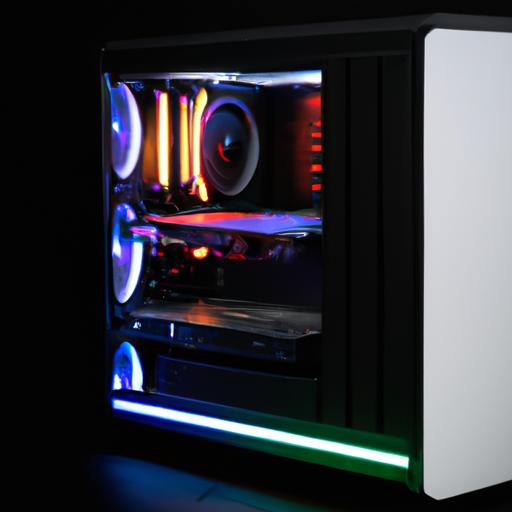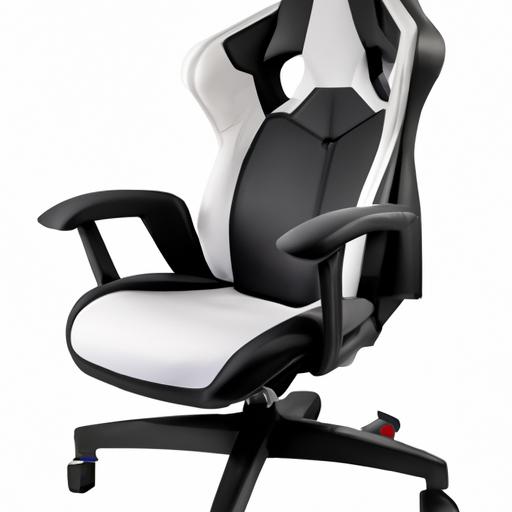Are Gaming Computers Good for Work?
As technology continues to advance, the lines between work and play become increasingly blurred. With the rise of gaming computers, many individuals have wondered if these high-performance machines can also serve as efficient workstations. In this article, we will explore the question, “are gaming computers good for work?” and delve into the pros and cons of utilizing these powerful devices in a professional setting.
Gaming computers are widely recognized for their exceptional capabilities, designed to handle demanding graphics and deliver an immersive gaming experience. However, these very features that make gaming computers excel in the gaming realm can also translate into significant advantages for work-related tasks.
When it comes to productivity, gaming computers truly shine. Equipped with powerful processors and top-of-the-line graphics cards, these machines can effortlessly handle complex software and multitasking. Imagine seamlessly maneuvering between resource-intensive applications, rendering videos while engaging in extensive data analysis — all without a hint of lag. The speed and efficiency offered by gaming computers can significantly enhance your workflow, allowing you to accomplish more in less time.
Moreover, gaming computers offer a level of customizability and upgradability that traditional office computers often lack. You can tailor your machine to meet the specific requirements of your work, whether you’re a graphic designer, video editor, or software developer. Additionally, the ability to upgrade components ensures that your workstation remains future-proof, accommodating new technologies and software advancements.
While gaming computers present numerous advantages, it is essential to consider the potential drawbacks before making a decision. One aspect that might deter some individuals is the higher cost associated with gaming computers. These machines often come with a premium price tag due to their specialized hardware components and gaming-oriented features. However, it’s important to weigh this cost against the increased productivity and performance that gaming computers offer. After all, investing in a high-quality workstation that can optimize your work efficiency might prove to be a worthwhile long-term investment.
In the following sections, we will further explore the pros and cons of gaming computers for work, considering factors such as individual work requirements and budget considerations. We will also provide tips on optimizing a gaming computer for work purposes. So, let’s dive in and unravel the world of gaming computers as potential workstations.
Pros of Using Gaming Computers for Work
In today’s fast-paced work environment, efficiency and productivity are paramount. Gaming computers offer a host of advantages that can elevate your work experience to new heights. Let’s explore the key pros of using gaming computers for work.
A. High-performance capabilities
When it comes to performance, gaming computers are the crème de la crème. These machines are equipped with powerful processors and top-of-the-line graphics cards, designed to handle the most demanding tasks. The robust hardware ensures smooth and seamless operation, even when dealing with resource-intensive software.
-
Powerful processors and graphics cards: Gaming computers boast advanced processors and graphics cards that surpass the capabilities of traditional office computers. These high-performance components enable faster data processing, rendering, and complex calculations, ensuring your work tasks are completed with ease.
-
Faster data processing and multitasking abilities: The processing power of gaming computers allows for lightning-fast data processing, enabling you to efficiently handle large datasets, run simulations, or compile code. Additionally, the multitasking capabilities of gaming computers allow you to seamlessly switch between multiple applications without any noticeable lag.
B. Enhanced productivity
Productivity is the name of the game when it comes to work, and gaming computers excel in this aspect as well. Their performance prowess translates into several productivity-enhancing benefits.
-
Smooth and lag-free performance: Gaming computers offer a seamless and lag-free experience, allowing you to work without interruptions. Whether you’re designing intricate graphics, editing high-resolution videos, or running complex simulations, a gaming computer ensures that your workflow remains uninterrupted and efficient.
-
Quick load times for applications and files: Gaming computers are designed to deliver lightning-fast load times, ensuring that your applications and files open swiftly. This means you spend less time waiting and more time getting things done, ultimately boosting your productivity.
C. Customizability and upgradability
One of the standout features of gaming computers is their flexibility when it comes to customization and future upgrades. This adaptability ensures that your workstation remains aligned with your specific work needs.
-
Ability to adapt to specific work needs: Gaming computers can be customized to meet the unique requirements of your work. Whether you need additional storage, increased RAM, or specific peripherals, gaming computers offer the flexibility to cater to your individual needs.
-
Potential for future hardware upgrades: As technology evolves, so do your work requirements. Gaming computers allow for easy hardware upgrades, ensuring that your workstation keeps up with the latest advancements in software and technology. This future-proofing feature helps extend the lifespan of your investment and keeps you at the forefront of productivity.
With the high-performance capabilities, enhanced productivity, and customizability offered by gaming computers, it’s easy to see why they make an attractive choice for work purposes. In the next section, we will delve into the potential drawbacks of using gaming computers for work and how to navigate them effectively.
Cons of Using Gaming Computers for Work
While gaming computers offer impressive performance and customization options, there are a few downsides to consider when using them for work purposes. Let’s explore some of the potential drawbacks:
A. Higher cost compared to regular office computers
One significant disadvantage of gaming computers is their higher price tag compared to regular office computers. This increased cost can primarily be attributed to the specialized hardware components that gaming computers require. These components, such as high-end processors and graphics cards, are designed to handle demanding gaming applications, resulting in a higher price point. Additionally, gaming computers often come with additional costs for gaming-oriented features, such as RGB lighting, gaming keyboards, and mice. While these features may enhance the gaming experience, they may not be essential for work tasks.
B. Potential distractions from gaming-related features
Another consideration when using gaming computers for work is the presence of gaming-related features that can be potential sources of distraction. Gaming computers often come preloaded with access to games and related applications, which can be tempting diversions from work-related tasks. It’s important to exercise self-discipline and resist the temptation to engage in non-work activities during work hours. However, it is worth noting that with proper self-control and setting boundaries, these distractions can be minimized or eliminated entirely.
To mitigate these distractions, one approach is to create separate user accounts on the gaming computer, dedicating one account solely for work-related tasks. This allows for better separation between work and leisure activities, reducing the likelihood of being tempted by gaming-related features while on the job.
In the next section, we will explore the considerations one should make when deciding whether a gaming computer is suitable for their specific work requirements. By assessing individual needs and evaluating budget constraints, one can make an informed decision regarding the use of gaming computers in a professional environment. Let’s proceed to the next section to delve deeper into this topic.
Considerations for Using Gaming Computers in a Professional Environment
In order to determine whether a gaming computer is suitable for your work needs, there are a few key considerations to keep in mind. By assessing your individual work requirements and budget constraints, you can make an informed decision that maximizes productivity without breaking the bank.
Assessing Individual Work Requirements
To begin, it’s crucial to assess the specific tasks and software you regularly use for work. Different professions have varying demands, and not all jobs require the high-performance capabilities of gaming computers. Consider the nature of your work and the software applications you rely on. If you primarily work with word processing, spreadsheets, or email, a gaming computer may be overkill. However, if your work involves resource-intensive tasks like video editing, 3D modeling, or data analysis, the enhanced processing power of a gaming computer could greatly benefit your workflow.
Next, evaluate the need for high-performance capabilities. Are you frequently running multiple demanding applications simultaneously? Do you rely on real-time rendering or virtual reality simulations for your work? If so, a gaming computer’s powerful processor and graphics card can provide the necessary horsepower to handle these tasks seamlessly. On the other hand, if your work primarily consists of basic office applications, a standard computer may suffice.
Budget Considerations
Budget is another significant factor to consider when contemplating a gaming computer for work. While gaming computers tend to be more expensive than their office-oriented counterparts, the cost-benefit ratio must be carefully weighed. Consider the long-term advantages that gaming computers offer in terms of productivity and performance. If the enhanced capabilities and efficiency translate into increased output and time saved, the higher upfront cost may be justified.
However, if budget constraints are a concern, don’t fret. There are alternative options worth exploring. Look for mid-range gaming computers or consider building a custom PC tailored to your specific work requirements. This way, you can still benefit from the performance advantages of gaming computers without breaking your budget. Additionally, considering refurbished or pre-owned gaming computers can provide a cost-effective solution without sacrificing too much in terms of performance.
By carefully assessing your individual work requirements and budget considerations, you can make an informed decision on whether a gaming computer is the right choice for your professional environment. In the next section, we will provide some tips on optimizing a gaming computer for work purposes, ensuring that you can make the most out of your investment.
Tips for Optimizing a Gaming Computer for Work Purposes
A. Adjusting settings for better productivity
To fully harness the potential of your gaming computer for work, it’s crucial to optimize its settings for maximum productivity. Here are a few key areas to focus on:
-
Optimizing power management settings: Adjusting your power management settings can help strike a balance between performance and energy efficiency. By selecting the appropriate power plan, you can ensure that your gaming computer operates at optimal levels for work tasks while conserving energy during periods of inactivity.
-
Customizing display and audio settings for work-related tasks: Take advantage of your gaming computer’s advanced display and audio capabilities by customizing them to suit your work requirements. Calibrate your monitor to achieve accurate color representation for graphic design or video editing tasks. Additionally, adjust audio settings to ensure clear and immersive sound quality during presentations or multimedia projects.
B. Installing productivity-boosting software
Apart from hardware optimization, utilizing productivity-boosting software can significantly enhance your work experience on a gaming computer. Consider the following tips:
-
Utilizing task management and productivity tools: There are numerous task management and productivity tools available that can help streamline your workflow. Applications like project management software, note-taking tools, and time-tracking apps can assist in better organizing your work, improving collaboration, and enhancing overall productivity.
-
Implementing security software and backup solutions: Protecting your work data is paramount. Install robust security software, such as antivirus programs and firewalls, to safeguard your gaming computer from potential threats. Additionally, implement regular backup solutions to ensure the safety of your important files and projects, minimizing the risk of data loss.
By adjusting settings and installing productivity-boosting software, you can optimize your gaming computer specifically for work-related tasks. These simple steps will help you unlock the full potential of your machine, allowing you to work efficiently and seamlessly. Now, let’s move on to the conclusion and summarize the key points we have discussed so far.
Conclusion
In conclusion, when considering whether gaming computers are good for work, it is evident that these high-performance machines have the potential to significantly enhance productivity and efficiency in a professional setting. The powerful processors, top-tier graphics cards, and impressive multitasking capabilities of gaming computers make them ideal for handling resource-intensive tasks.
While the cost of gaming computers may be higher compared to traditional office computers, the long-term benefits of increased productivity and the ability to customize and upgrade the workstation justify the investment. It is crucial to assess individual work requirements and budget considerations to make an informed decision.
To optimize a gaming computer for work purposes, adjusting settings such as power management, display, and audio can improve productivity. Installing productivity-boosting software and implementing security measures further enhances the work experience on a gaming computer.
In the end, the choice between a gaming computer and a regular office computer depends on your specific needs and preferences. If you require high-performance capabilities, seamless multitasking, and the ability to customize your workstation, a gaming computer may be the right choice for you. However, if budget constraints are a significant factor, exploring alternative options within your budget is also worth considering.
Remember, a gaming computer can be a powerful tool that not only caters to your gaming desires but also elevates your work experience to new heights. So, whether you’re a professional content creator, a designer, or a software developer, unleash the full potential of a gaming computer and let it revolutionize your work productivity.
Now that you have a deeper understanding of whether gaming computers are good for work, it’s time to make an informed decision that aligns with your specific needs. Embrace the possibilities, harness the power, and embark on a journey of enhanced productivity with a gaming computer as your trusty work companion.






